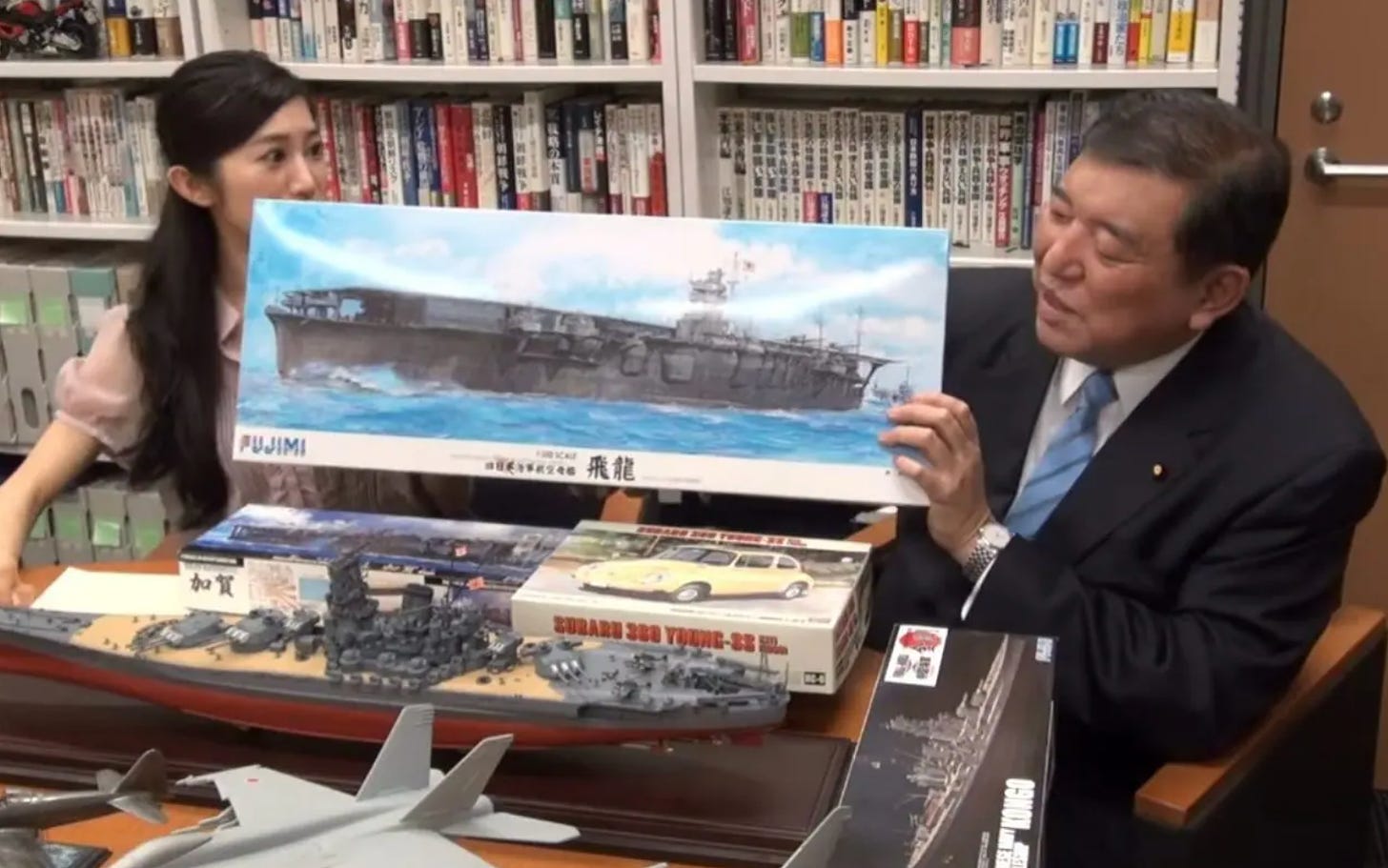In the Pacific, Japan is the USA’s most valuable ally (sorry, Australia, we love you too, but numbers are numbers).
It has been almost eight decades since the end of the Second World War. Japan cannot continue to keep her stance towards the world that was imposed on her by the victorious Allies. Much has passed.
As a reference point, that same length of time would be from the end of the US Civil War to 1944.
Things and nations have changed.
As regulars know, I’ve long maintained that both Germany and Japan are overdue to step up as full partners among leading democratic nations, including establishing robust and independent national security postures.
Part of that is the USA needs to push back against our own national security intertia and realize that we do not need to garrison these nations like we did for decades. A few combined training, maintenance, and support facilities at the invitation of the host nation? Sure. Share officers on staffs? Sure. We’d need to properly increase strategic air and sea lift should we need to send forces across the seas, but that is fine. In a way, a net positive as fixed forces under a potential enemies rocket forces are simply targets. Forces properly designed for mobility and manouver are harder to plan against and are more useful when history throws you a curve ball, as it often does.
Sure, more independent nations may not always align with the USA, but like people, nations have agency, and their leaders should pursue their national interests. If they are inside the lines of the community of free nations—allied or not—we have a good record between us in working out problems without the force of arms. Free people usually don’t care to go to war against each other, and let their governments know it. They usually respond, a quasi-virtuous cycle.
Not all nations are inside the lines of free nations and pose a threat to peace and order. Standing together, free nations have a pretty good record of standing with each other against the forces of autocracy that always appear.
As such, I would like to rise in support of the direction the new Japanese Prime Minister wants to take his nation.
Via Peter Landers and Miho Inada over at WSJ;
Japan’s next leader will be a former defense minister who wants to reshape what he sees as an unequal alliance with the U.S., presaging possible tensions with Washington.
…
“I will protect Japan,” Ishiba said at a news conference during his campaign. “Now is the time to use the experience I have accumulated over years to achieve this goal.”
In 2024, a Japan better able to defend herself is a benefit not just to her as a hedge against American … unreliability as of late … but is a net gain for the security of the entire region including South Korea, Vietnam, Taiwan, Philippines, Indonesia, Australia and more.
Ishiba represents a different strand of the LDP from the late Prime Minister Shinzo Abe and the current leader, Fumio Kishida, who announced his departure in August. Abe and Kishida boosted defense spending and sought to deepen Japan’s alliance with the U.S. without changing its fundamental structure.
By contrast, Ishiba chafes at the asymmetrical aspects of the alliance. Japan hosts some 55,000 U.S. troops on its territory, shouldering 75% of the operating costs of U.S. bases. A treaty obligates the U.S. to come to Japan’s aid if Japan is attacked, but doesn’t require Japan to do the same.
“I don’t think Japan is a truly independent nation yet,” Ishiba said in a book published in August.
That is a fair and defendable position.
During the campaign, Ishiba floated a number of ideas to redo the alliance. In a candidates’ debate in Okinawa, the southern island that hosts most of the U.S. troops in Japan, he suggested that U.S. bases could be converted to joint U.S.-Japanese operations.
He has objected to treaty restrictions limiting Japan’s access to U.S. bases and equipment, such as when a U.S. military aircraft crashes in Japan.
Again, this is more than fair. If Japan wants to base some forces with ours on Guam, why not? From air defense to Marines—why not?
In addition to some of these ideas, as a man there are a lot of interesting details you can find out about here, but from the WSJ article, these two caught my eye.
His mother, a teacher, was a Christian, which is relatively unusual in Japan, and Ishiba was baptized when he was 18.
…
Ishiba’s office is filled with some 500 books on military subjects, economic policy and history along with model warplanes.
I think we can work with this man.





He reads like a traditional conservative: loves his country, isn't crazy about having to overly-accommodate defense partners in Japan, wants to maintain a robust national defense, continues to recognize the threat, wants to maintain it's alliances with its current allies.
Can't say Japan hasn't made the investments unlike a number of our European allies.
Great and timely post! Japan is the natural bulwark against ChiCom expansion - we should continue to develop closer ties based on mutual security interests. In my training with the JSDF, I found them to be a very professional and capable force. Very interesting background on the new PM. Thanks for sending this!